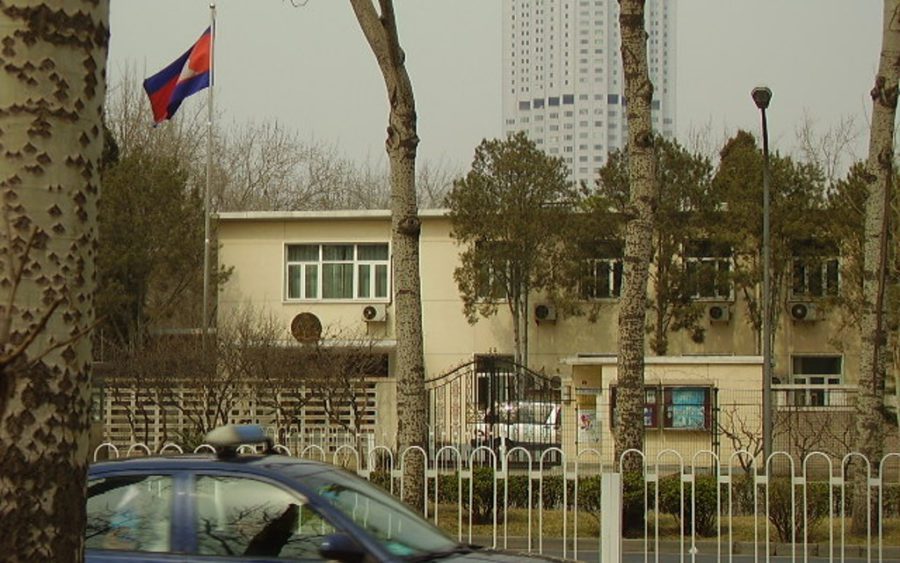More than 300 trafficked Cambodian women were returned from China in the first nine months of the year, mostly after being scammed into marriages, according to the Foreign Affairs Ministry.
It was more than double the total for all of 2020, said spokesperson Koy Kuong, adding that Cambodia’s Interior Ministry and Chinese authorities were in regular contact to tackle human trafficking.
Most cases involved traffickers falsely promising jobs in China, Kuong said.
Khun Tharo, program officer at labor rights group Central, said the numbers were not surprising amid a rise in trafficking.
“It’s a clear indicator showing that Cambodia is not doing enough to prevent it [and] eliminate human trafficking cases and not making more efforts to reinforce the laws,” Tharo said, calling for more action against the traffickers.
“We’ve barely seen anyone who is powerful and involved in human trafficking face the law,” he said.
Ith Chhouk, 27, was repatriated from China just last month.
Exactly a year ago, on November 9, 2020, she left the country after being promised a good job there through a friend. She stayed at a Phnom Penh hotel with 17 women before being driven into Vietnam, from where she expected to fly to China.
In Vietnam, after being passed from one car to another, the group of women began walking toward the Chinese border. Chhouk, who said she wanted to be identified in this article, did not know where she was and couldn’t get away. Traffickers had also taken her ID and passport, she said.
“I walked with 17 women, with no sleep for four days. We only stopped when we got tired. They brought us a rice box to eat. I was exhausted,” she said.
She initially worked in China washing recyclables and making disposable utensils. But when she asked for money to send home to Cambodia, her brokers refused.
Soon, she was brought to a Chinese man to be made his wife. Chhouk said no, as she had two children in Cambodia from a previous marriage. But she was told she would lose any chance of returning to Cambodia if she refused. After a couple months with the first man, she was taken to a second.
Ten days later, she fled to a local police station. “I wanted to come back home. I couldn’t live like that anymore. No one hurt or beat me, but there was no freedom to go out, only to stay inside the house.”
Returning to Cambodia was not straightforward. Her translator at the Chinese police station was one of her brokers who had sold her into marriage, Chhouk said. Her “husband” also turned up at the station.
“I told the police that they forced me to have him as my husband.” They put her in jail, she said.
It was her younger brother in Cambodia, Ith Bros, 21, who was able to get her help. Chhouk had sent him her address before fleeing to the police station: “I’m running to the police station and I don’t know if I can get out from there. … I’m scared if they can catch me. They will lock me in the house forever,” she had told him.
Bros said he contacted the Foreign Affairs Ministry. He did not know what to expect, but after several days he received a letter that authorities had found his sister and was arranging her return, he said.
Chhouk said she arrived in Cambodia on October 14. She is now helping with rice farming and raising cows.
She said she knew of many other women stuck in China wanting to come home.
Applying for jobs was still a problem, as she had lost her ID and passport, and local authorities had not been understanding about producing a new one, she said.
“The authorities cannot make a new ID for me, because [they say] I don’t have a good reason that I lost my ID and passport.”
CORRECTED 6:50 p.m.: The article was updated to correct Chhouk’s initial jobs in China.













